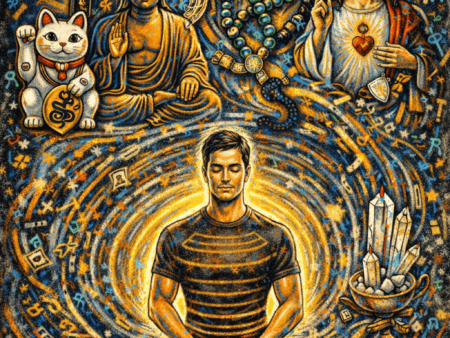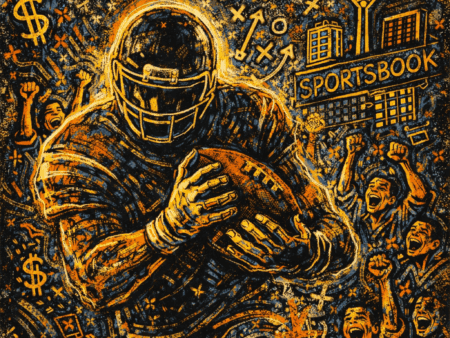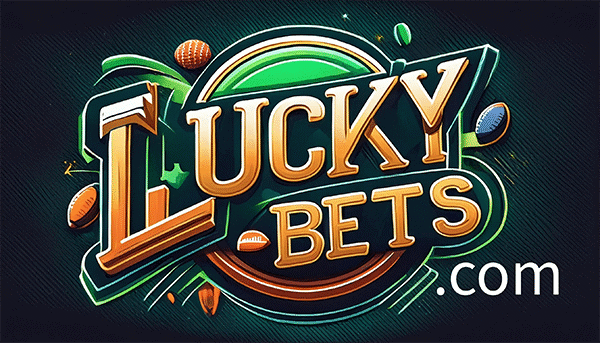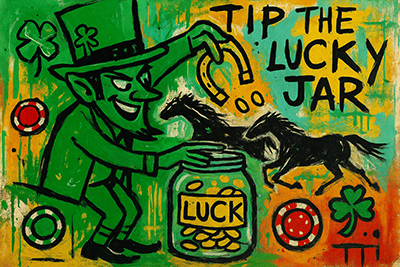Las Vegas wasn’t built on logic. It was built on belief.
Every chip, every spin, every hand played under those neon lights carries one question, is tonight the night luck finally remembers my name?
You can feel it walking down the Strip. The pulse of slot machines, the rhythm of dice hitting felt, the tension before the last card turns. It’s not just money at stake, it’s energy, destiny, and faith in something you can’t quite measure.
Lady Luck isn’t a myth. She’s an energy that cultures across the world have chased, studied, and prayed to for centuries.
The Native American View — Harmony, Spirit, and the Power of Balance
Many Native American traditions see luck not as a roll of the dice, but as harmony between spirit and action. Among tribes like the Lakota and Navajo, good fortune is believed to follow those who live in balance with nature and the ancestors.
Feathers, stones, and smoke ceremonies aren’t about “charming” luck, they’re about cleansing negative energy so opportunity can flow.
In that worldview, the lucky gambler isn’t reckless, he’s aligned. When you feel at peace with your surroundings, the odds seem to bend your way.
The Latin American Belief — Saints, Superstitions, and the Spirit of Risk
Across Latin America, luck is a living thing. It’s in the rosaries that hang over dashboards on the drive to the casino. It’s in the candles lit to San Expedito, the patron saint of urgent causes, or Santa Marta la Dominadora, called upon to dominate luck itself.
In countries like Mexico, Cuba, and Colombia, gamblers often wear red or gold for protection and attraction, red to draw passion and luck, gold to keep it.
Latino culture treats luck like rhythm: you can’t own it, but if you move with it, you can ride it all night long.
The Asian Tradition — Prosperity, Numbers, and Energy Flow
Nowhere is luck studied more deeply than in Asia.
In Chinese culture, the number 8 reigns supreme, its pronunciation, “ba,” sounds like “fa,” meaning wealth. Casinos from Macau to Singapore use red and gold because they attract happiness and fortune. Even entrances are designed using feng shui to direct lucky energy through the doors and toward the tables.
In Japanese tradition, luck ties to discipline and intention. Omamori charms from temples protect travelers, while Daruma dolls symbolize perseverance, make a wish, fill in one eye, and don’t complete the second until your wish comes true.
In Southeast Asia, gamblers pray to spirit houses or the goddess of fortune before entering casinos. The belief is simple: if your energy is clear, the universe will meet you halfway.
The Indian Perspective — Karma, Symbols, and Sacred Timing
In India, luck and karma are woven together. Prosperity isn’t seen as chance, but as the reward for aligned action.
Before major bets or business ventures, many Hindus honor Lakshmi, the goddess of wealth and fortune, offering flowers or coins to invite her blessing.
Colors matter deeply: yellow represents purity, green success, and red victory.
Even timing has power. Astrology guides when to act, certain moon phases and planetary alignments are said to amplify prosperity.
To the Indian mindset, you don’t chase luck, you cultivate it through preparation and devotion.
The Arabic and Lebanese Belief — The Nazar and the Energy of Protection
In Arabic and Lebanese traditions, luck often begins with protection. The blue evil eye, or nazar, deflects jealousy and negative energy that can block good fortune.
Before taking risks — be it a business deal or a high-stakes game, many will invoke the phrase “Inshallah,” meaning “if God wills it.” It’s both surrender and trust, a reminder that luck answers to higher order.
Wearing gold, carrying a small hand-shaped charm known as the hamsa, or burning incense before travel are all rituals meant to guard fortune’s path.
In these cultures, true luck is divine permission, a moment when fate and faith align.
The Western Belief — Chance, Risk, and the Myth of the Hot Hand
In the West, luck is both entertainment and obsession. Horseshoes hang over doors, four-leaf clovers fill pockets, and gamblers at Vegas tables swear by “hot streaks.”
Even science has joined the conversation. Studies show that confidence changes brain chemistry, improving decision-making under risk.
The so-called “hot hand” might be real, not because of magic, but because belief makes performance sharper. In Las Vegas, that’s the secret. Luck rewards momentum and mindset as much as mathematics.
The Universal Thread
Across continents, cultures, and casinos, luck follows a pattern, clarity, belief, and rhythm.
When your energy is right, your focus tightens. When your belief deepens, fear fades. That’s when timing clicks and fortune answers.
So if you’re heading to Las Vegas this fall, don’t just pack your wardrobe, pack your rituals. Light a candle, wear your color, carry your charm.
Every tradition has its version of Lady Luck. They all agree on one thing: she shows up for those who believe she will.
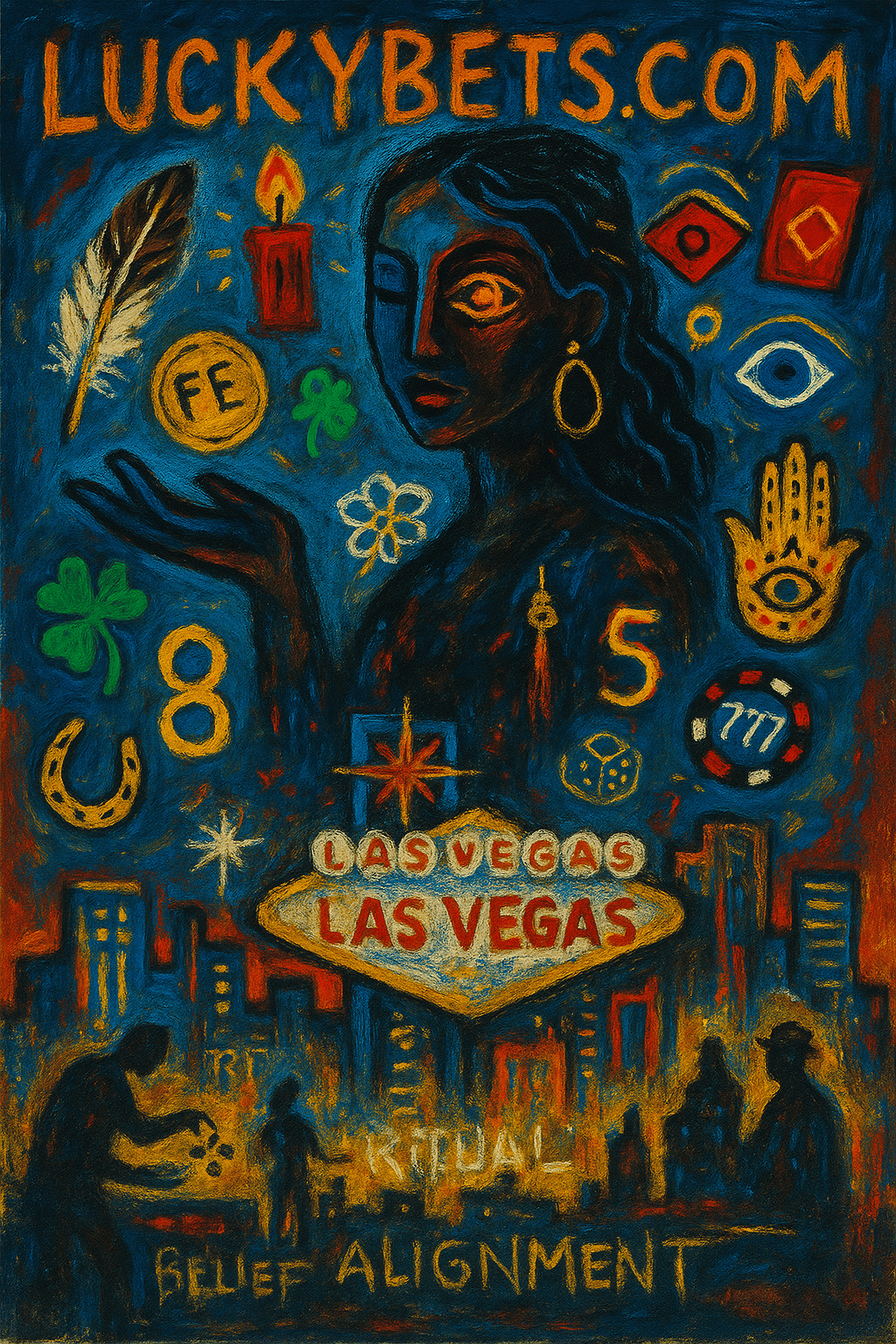
Vegas doesn’t just reward skill. It rewards alignment. Belief is your bankroll, rhythm is your ritual, and luck, well, luck is just waiting for you to look her in the eye.
LuckyBets.com


